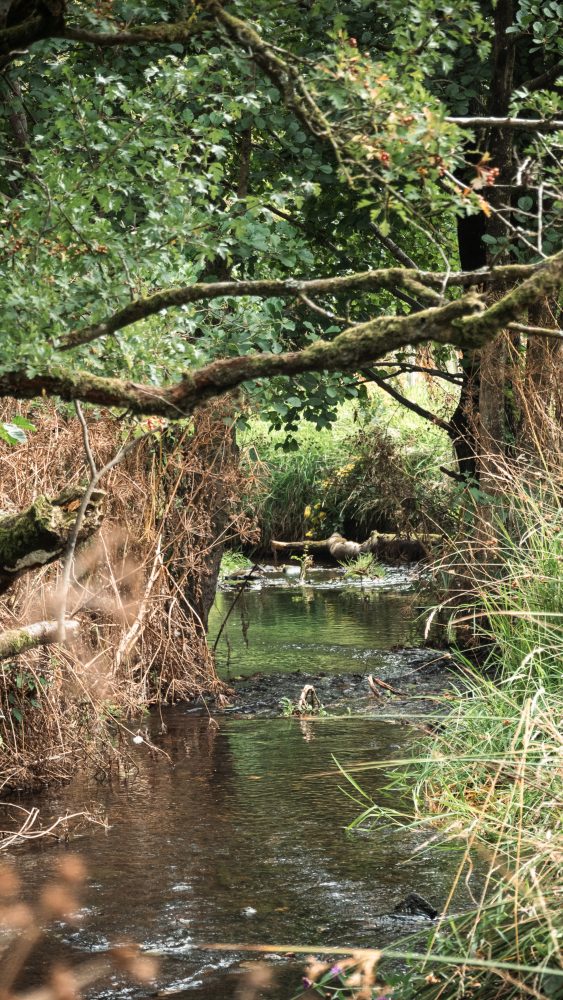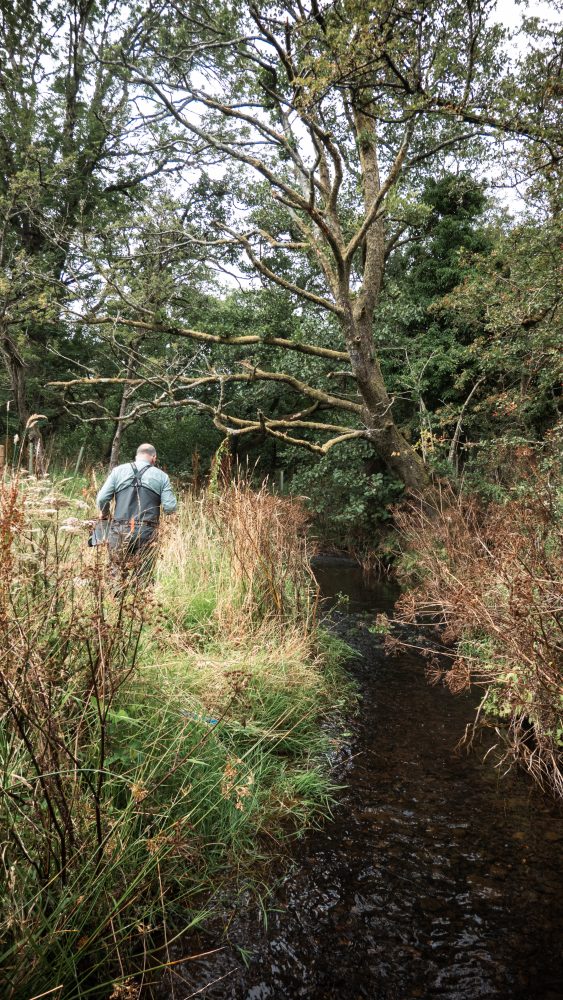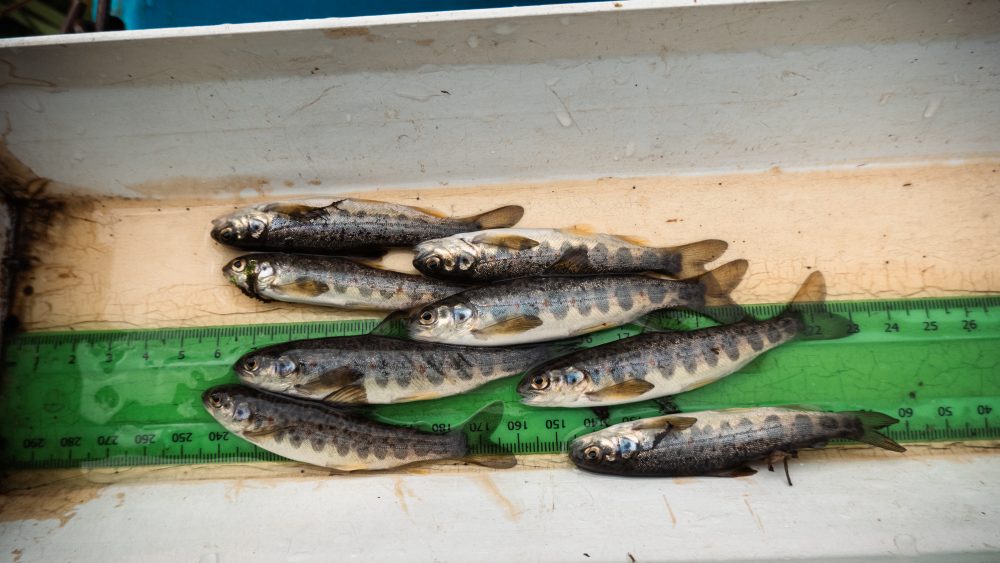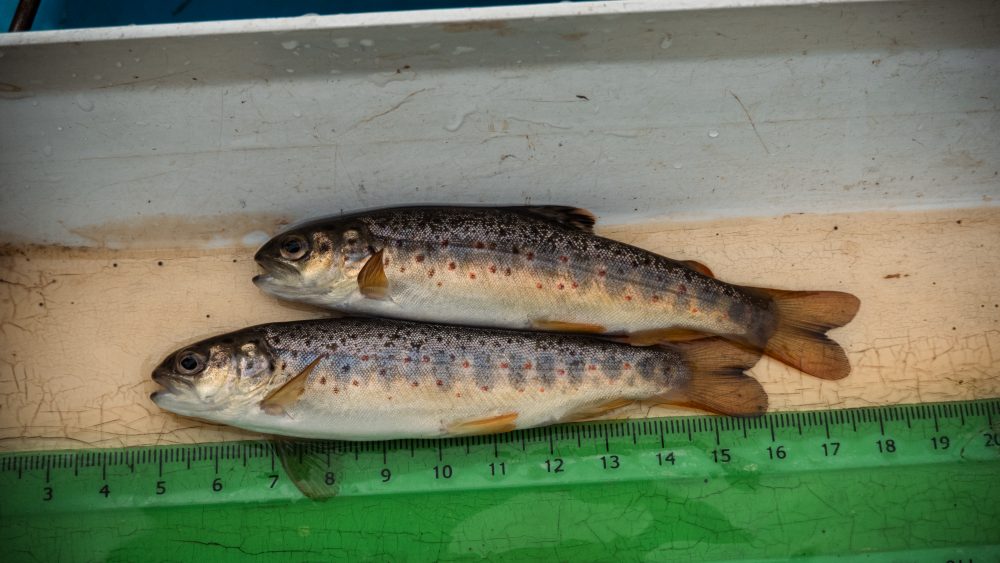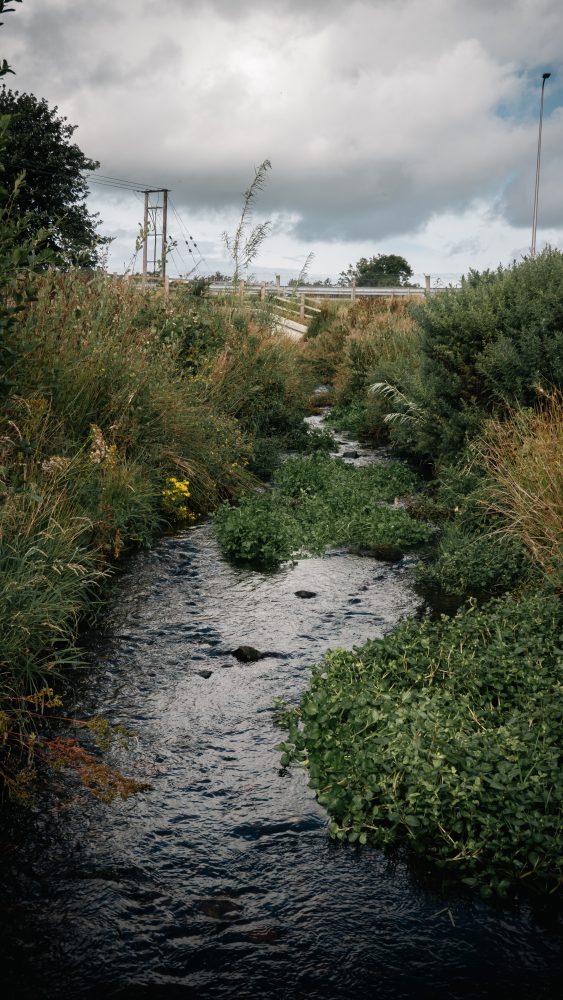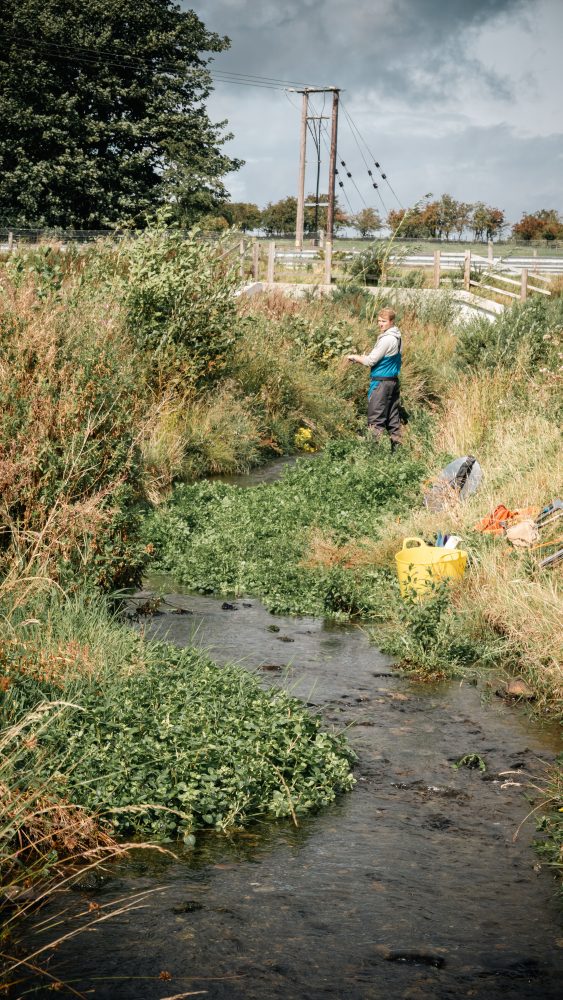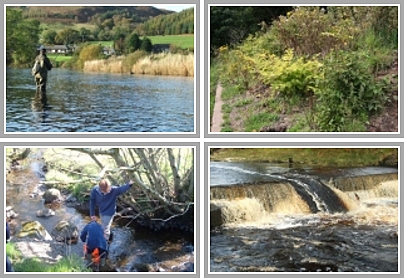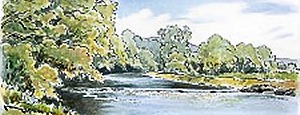Over the last few years we have been actively fencing and improving small burns that were in poor condition and supported fewer fish than they should have. Often after all other attempts to gain improvements through the regulator have failed, we have had to step in ourselves. Fencing whilst expensive alleviates almost all the problems that plague our burns and rivers across Ayrshire. Overwhelmingly the issues we see, report and try to remedy are driven by unmanaged livestock access which leads to erosion, enrichment and reduced riparian margin vegetation and trees.
- With run/riffle habitat and lots of potential for spawning throughout this section of the burn its little wonder we’re now seeing such good juvenile trout and salmon numbers in this part of the burn.
- With cattle excluded from the margins the riparian vegetation has transformed and now offers fantastic fish cover throughout the burn
Even with a helping hand and considerable effort, it takes time for ecology to recover and this is largely due to the delay between excluding livestock and the burn habitat clearing silt from spawning gravels. It also takes time for the riparian vegetation to recover. However, in some cases, we are seeing rapid progress and are encouraged by the in stream improvement to both habitat and fish stocks. With a two years of livestock exclusion and many spates now to help mobilise and push the silt through the burn we are very encouraged by how clean the burn has become.
- There were plenty of salmon fry in our survey site and all looking healthy and well fed. With good invertebrate life in the burn and in the well vegetated margins of the burn there’s very little to hold fish back now.
- A lovely brace of well fed brownies.
Stuart and I were on the Brockloch Burn in the Doon catchment last week and I’ve posted a few images below that show the transformation to both banks and the river bed. We surveyed 2 sites and like last year, we found salmon in both and very respectable numbers of trout. That’s a success and long may it continue which I’m sure it will. It goes to show how robust fish are as this burn has bounced back quickly following the improvements to water quality and in stream habitat. Essentially all this has been achieved by fencing the burn – we have of course planted trees, seeded bare banks and helped maintain access through the road culvert at key times in the year.
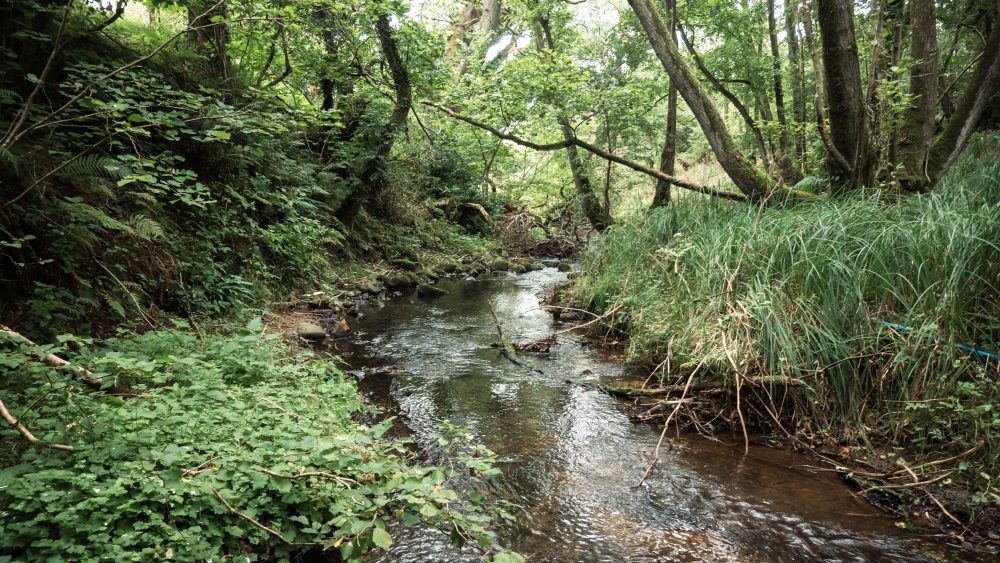
The burn through a section of wet-woodland that offers good shade and in stream habitat. Our gravity fed watering system pipe work can be seen on the right hand side of the frame. This takes a feed of water from the 600m upstream of the water troughs and feeds it to cattle drinking points year round to ensure the livestock have ample water whenever they desire it.
This project on the Brockloch was funded by the Wild Fisheries Fund through Salmon Scotland and was also supported by the River Doon District Salmon Fishery Board and the Trust.
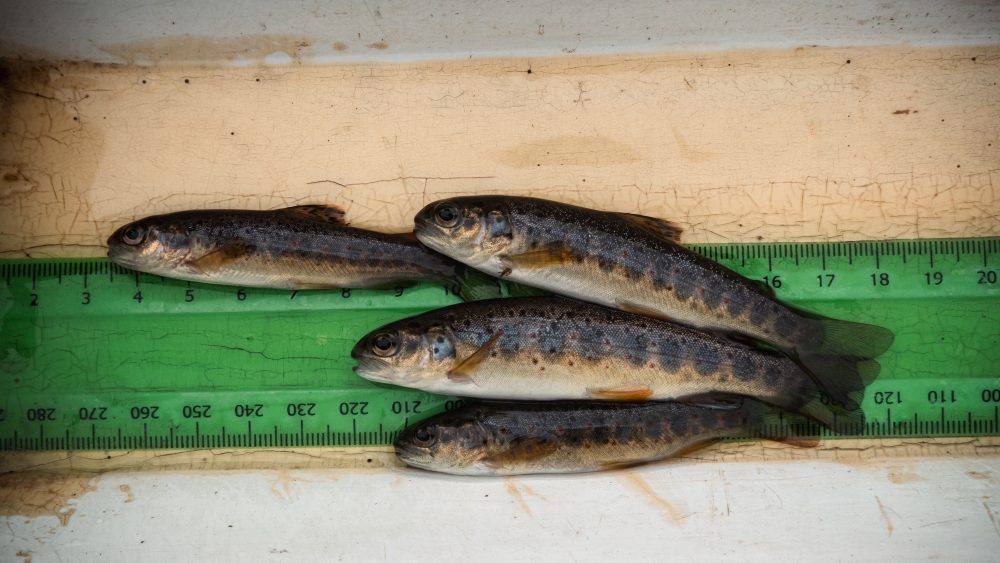
The upper section of the Brockloch Burn was moved during the construction of the new Maybole Bypass a few years ago and whilst the move and landscaping were well done it has taken some time for the site to naturalise and start to look like a natural watercourse and the burn is still very much finding its way to that stage – but it is getting there.
- With trees emerging on the banks -many willows which we planted as cuttings a few years ago and banks of weed and some boulders in the site the upper burn is developing into a nice habitat capable of supporting various age classes of trout and juvenile salmon
- Cameron completes the habitat survey after the electrofishing
